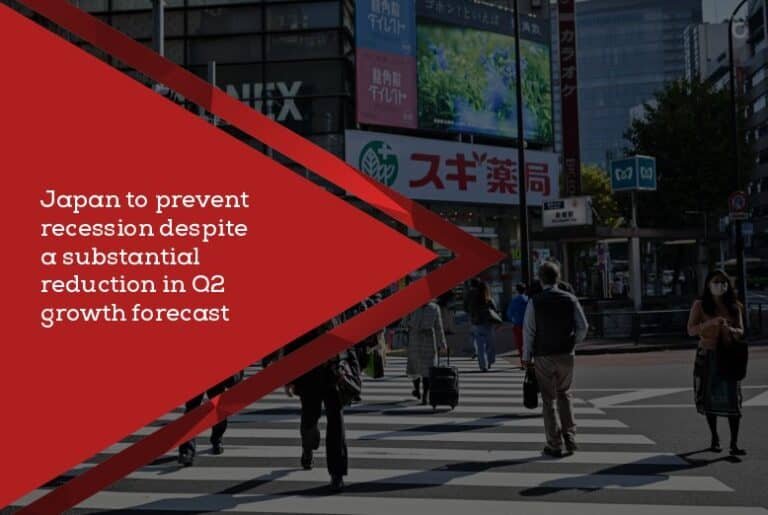Key Highlights
- In January-March, Japan’s GDP fell by 3.9 percent on an annualized basis.
- Core consumer prices are set to rise 0.2% this fiscal year.
- The economy might experience a rapid spending comeback if the healthcare issue resolves.
Avoiding Recession
The Japanese economy most likely increased and avoided recession this quarter, but an extension of emergency measures to combat an increase in coronavirus infections has dampened the growth prospects.
Just over a month before the Olympic Games begin in Tokyo, the world’s third-largest economy is expected to grow by 0.5 percent this quarter, less than a third of the 1.7 percent researchers predicted last month, according to a June 2-14 survey of 36 analysts.
Japan’s GDP fell by 3.9 percent year on year in January-March, the first loss in three quarters.
About 85 percent of analysts questioned anticipated the Bank of Japan’s next policy decision, which is slated to take place this week, to be a reduction in stimulus, but 90 percent anticipate it to happen in 2023 or later, and the remaining 10 percent not until next year.
About two-thirds of economists, 23 out of 36, predicted that the economy would expand this quarter, while the other 13 predicted that it would decrease, ushering in a recession – as defined by two consecutive quarters of decline.
Japan was in a recession until the second quarter of last year.
The economy is expected to grow at a 4.8 percent annualized pace in the third quarter, down from a 5.3 percent annualized pace predicted by experts last month and contrasted to a far higher annualized pace of 7.0 percent in the world’s top economy.
Spending Drag
According to a survey, core consumer prices, which exclude volatile fresh food costs, are expected to grow 0.2 percent this fiscal year, down from 0.3 percent predicted last month.
Twenty-eight economists out of 37 predicted private consumption would be unlikely or extremely unlikely to rebound to pre-coronavirus levels this year, while the other nine thought it was probable or very likely.
However, if the healthcare issue resolves, the economy might experience a rapid spending comeback, given people’s savings have increased while the unemployment rate stays around 3%, according to Yuichi Kodama, chief economist of the Meiji Yasuda Research Institute.
Also Read:- 10 Best Investment Options To Grow Your Money Faster



